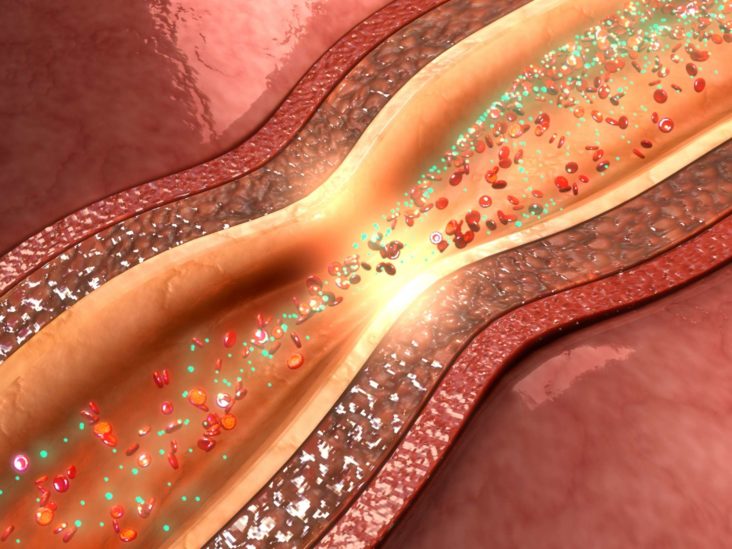Muscle spasm in chest near heart weakness fatigue in legs brain fog headache. The goal is to identify what muscle is causing the problem and to determine why its reacting.
:max_bytes(150000):strip_icc()/muscle-twitches-3972556-FINAL-705353ba811249b982a23a35b2d4dd51.jpg) Muscle Twitches Ms And Other Possible Causes
Muscle Twitches Ms And Other Possible Causes
It can be due to angina.

Muscle spasm near heart. Its a spasm from an overworked or lightly damaged muscle in your chest. You may also be experiencing esophageal spasms which are not dangerous but feels very much like heart. The pain can radiate along the muscles to other areas such.
If this erratic or irregular nature occurs in a muscle thats located in your chest youll feel it just as if you were feeling the erratic fasciculations of an eyelid or elsewhere such as in your butt the back of your upper leg or your calves. Pseudohypoparathyroidism Pseudohypoparathyroidism is a rare inherited condition that can lead to cramps muscle spasms and more. This is another issue that should be addressed by a doctor.
You will be fine. A coronary artery spasm occurs when a segment of an artery which carries blood to the heart tightens and narrows. When a muscle twitches fasciculates it can be very rhythmic kind of like the beat of a drum.
When the spasms occur in the stapedius muscle you will hear more of a crackling or buzzing noise. A coronary artery spasm is a temporary tightening constriction of the muscles in the wall of one of the arteries that sends blood to your heart. Also go to your doctor to inquire about Gerdreflux.
However it can also be irregular with an erratic nature. Why would you have muscle spasms around your heart Answered by Dr. As the artery spasms the heart is.
Vision seems worse recently. It is visible that muscle is moving and also having some tightness when it is twitching. Spasms can affect people of all age groups irrespective of gender.
This happening from last 2 days. Spasms can also occur when a muscle is overused injured tired or strained. It is also common to experience a temporary tightness in the chest or difficulty.
Chest palpitations usually feel like a small flutter in your chest without the external presentation of muscle tremors. A diaphragm spasm is a sudden involuntary contraction that often causes a fluttering feeling in the chest. Just ride it out and dont let it cause anxietydont think about it being heart related ice will help as well.
Here are the most common reasons for chest spasms. A muscle spasm is an involuntary contraction of a muscle. WebMD Symptom Checker helps you find the most common medical conditions indicated by the symptoms muscle cramps or spasms painful palpitations fluttering.
Symptoms of a pulled muscle around the heart are much like any other muscle except that because of where the pain is some people have mistaken the pain as heart trouble 1. Muscle spasms could even cause a squeezing chest pain that may be mistaken for a heart attack. The largest muscle and the one that brings the most concern is the heart.
Muscle spasm near heart. These can also occur in the chest when the muscles in the chest contract involuntarily. Gastro Esophageal Reflux Disorder.
If a spasm lasts long enough you can have chest pain angina and even a heart attack myocardial infarction. Also have right side back pain. Im having muscle spasms near heart just beside chest bone.
Asked for Male 24 Years. Unlike angina caused by fatty plaques that block arteries to the heart its caused by a spasm of the muscle layer in the wall of the blood vessel which leads to a temporary artery blockage. There can be shooting pain stabbing pain a feeling of heat in the area tenderness and tightness in the chest and you may even see some swelling.
Uncle spasm or precordial pain. There are many causes and health conditions that lead to muscle spasms in chest like chest. Remember that chest palpitations differ from muscle spasms completely in that they signal heart rhythm irregularities.
A spasm can decrease or completely block blood flow to part of the heart. I am a 26 year old body builder and constantly get them. MEM can be caused by loud noises stress or spasms that occur in the palate or facial nerves.
When the tensor tympani spasms it tends to sound like a clicking noise or a drum being beaten. Unlike typical angina which usually occurs with physical activity. These are very painful and one gets relief only after the spasm is released.
